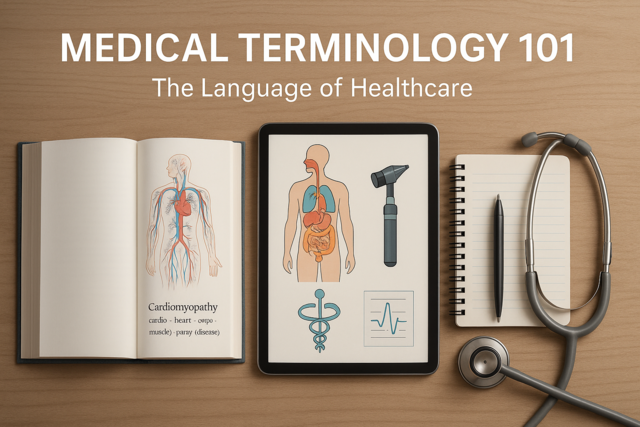Introduction
Residents of nursing homes, regardless of their age, condition, prognosis or length of stay, have basic rights as determined not only by the Centers for Medicare and Medicaid Services, butby state inspectors, and accrediting associations. Patients in medical facilities today have the right to an enjoyable number of protections by law.
All residents or family members of a resident placed in a nursing home should be given a copy of the nursing home's Resident's Rights. Understanding these rights and how guidelines for such rights are determined and upheld offer individuals more knowledge regarding appropriateness and quality of care for their loved ones.
Basic Nursing Home Resident's Rights
Everyone deserves to be treated with dignity and decency. In a perfect world, all residents in nursing homes would also be treated with the utmost of compassion and consideration. The fact is that some nursing homes are better than others. Regardless of where they're located, how much the administration charges for rooms, or the type of residence in such facilities, nursing homes around the United States have undergone drastic and favorable improvements in the past few decades.
Not long ago, nursing homes were merely places where old people went to die. Today, nursing homes or long-term care centers are home to a wide number of age groups, and often serve as rehabilitative locations for post-surgical care for patients in their 20s, 30s, and 40s.
.
Basic nursing home resident's rights include:
-
Respect.
-
Adequate services and appropriate fees.
-
Financial security.
-
Privacy.
-
Medical care.
Every resident in a nursing home deserves to be treated with respect and dignity. This is a given. An advocate should stress the importance of treating every elderly individual as if they are a member of the caregiver's family. Caregivers in a nursing homes can range from the administrator of the facility to the part-time employee working in laundry or housekeeping. Nurse's aides, nursing staff, kitchen or dining room staff, activities directors, and physical, occupational, and speech therapists in constant and direct contact with residents are charged with maintaining the respect, dignity, and confidentiality of every patient.
Knowledge of available services and the fees charged for such services should be made available to all residents and family members or those responsible for their admission into a nursing home environment. There should be no surprises, no reductions in services based on religion, heritage, culture, or demographic background.
In most cases, services and fees are included in introductory materials before a patient is admitted. Reimbursement and billing is conducted through the facilities business office depending on the current insurance and healthcare coverage of the resident. Advocates can help ensure that services and fees are appropriate and that patients and their families are given help with such information throughout the admission and stay process.
Every resident has the right to maintain their own funds for whatever reason they wish. In most nursing homes, residents are cautioned against keeping large amounts of money in their private rooms. Facilities can set up accounts with residents for a certain amount of funds on a weekly or monthly basis, or offer use of a facility safe for use by residents.
Residents of a nursing home also have the right to determine who will manage their financial matters outside of the facility. In most cases, this person has the financial Power of Attorney, but may also include other family members, designated or not, and spouses or friends. An advocate for a nursing home will make sure that the resident, whenever possible, has monetary access to necessities not provided by the nursing home.
When it comes to privacy, residents deserve his or her space and the right to keep some of their personal belongings with them. In most nursing homes, residents have a choice of a semi-private or private room, depending on their availability to pay. Semi-private rooms are generally divided in half by either a bed curtain or a short retaining wall. Dressers are often shared by roommates, with one roommate taking half the dresser or closet space, and the other resident taking the other half. Bathrooms are typically shared between rooms. Space will dictate if or how much of a resident's personal belongings may be brought into the nursing home.
Every resident in a nursing home has a right to medical care, either by trained nursing staff at the facility, visiting doctors, or access and transportation to and from a hospital, doctor's appointments, or outpatient care facilities. Residents also have the right to refuse medical care, medications, therapy treatments, or other recommendations by their doctor.
Taking Care of Business
Often family members don't agree with the resident regarding their care in a nursing home facility. In such situations, elderly patient advocates walk a fine line between ensuring the needs of the resident while respecting the wishes of other family members. However, the resident is always the primary concern of a patient advocate. Their wishes and demands should be followed regardless of arguments or complaints from family members whenever possible.
While such situations are certainly not pleasant and can grow quite convoluted and ugly at times, patient advocates must strive to maintain open lines of communication between all parties involved in the resident's care. Patient advocates often find themselves to be in the middle of family disagreements regarding end-of-life care for elder relatives.
Case study:
Mr. Jones is a 92-year-old man diagnosed with terminal prostate cancer. Up until very recently, he did not have that much contact with his two adult children, who lived out of state. Mr. Jones was able to remain in his home until a fall broke his hip and required surgery. He's been transferred to a nursing home for care and rehabilitation. He has requested no extraordinary lifesaving measures and has signed advance directives and a Do Not Resuscitate order.
Mr. Jones takes a turn for the worse and is placed in hospice care. Sandy, his adult daughter, arrives at the facility demanding that her father receive every possible treatment, including feeding tubes, IVs, and medications that may help improve his condition and extend his life.
The nursing staff advises Mr. Jones's daughter that he has designated no lifesaving measures, and has signed a DNR and advanced directives, now located in his medical chart. Sandy doesn't care. She states that her father was in no mental condition to sign such documents. She demands that the nursing staff do as she directs and threatens to sue the facility if her father's health declines any further.
As you can see, with many issues in nursing home care, the resident's rights and last wishes are not simply black and white. There are many shades of gray in between. Of primary importance to an elderly patient advocate should be the comfort, security, and dignity of the elderly patient.
Conclusion
One of the most important jobs you'll have as in elderly patient advocate, whether you're a professional, a volunteer, or layperson, is to protect the legal rights of seniors. This means protecting them against scams, theft by relatives, and unfair housing actions. In some cases, you may also be able to help elderly patients in a number of situations to avoid financial difficulties such as overdue bills and debt collectors.
Scams
It's unfortunate that many scammers, disreputable, and dishonest people prey on the elderly because they consider them easy targets. Unfortunately, many seniors are so lonely and isolated that they take phone calls and solicitations from people they don't know. Many seniors are trusting of others and become easy victims to a wide number of scams, fraud, and counterfeit schemes.
Some of the most common forms of a scam on the elderly include:
-
Telemarketing.
-
Health insurance fraud.
-
Cemetery or funeral fraud.
-
Reverse mortgages. Reverse mortgages are a very effective way for seniors to remain independent and in a home environment. Unfortunately, if seniors and their family members don't ensure that the individuals claiming to be lenders or bankers are really who they say they are, incidents of reverse mortgage fraud can lead to the equity of a senior's home being stolen.
-
Emails or phone calls from individuals masquerading as banks, the IRS, the Social Security office, or credit card issuers.
-
Investment schemes.
The best way to protect seniors is to educate them and their family members against such incidents and suggest caution and background checks before allowing a senior to hand over any monies until the reputation, authorization, or license of callers, visitors, or e-mail senders has been verified.
Note - Everyone, and that goes for all age groups, need to be especially wary of responding to emails or phone calls from persons whose identity can't be verified. When in doubt, always go to the source. The IRS, banks, credit card issuers, and lenders don't request personal information through e-mail or over the phone.
An elderly patient advocate should always be present for signing documents when a senior has been diagnosed with any form of cognitive difficulties or dementia. Medications may also alter cognitive and reasoning capabilities and judgment capacity of a senior. Major decisions regarding finances should always be conducted with patient advocates, legal representation, or trusted family members who are present during any meeting or for any change made in financial or legal status that requires a senior's signature.
Relative Theft
Sad to say, not all relatives are loving and compassionate toward their family members. An elderly patient advocate may need to be especially alert in cases where family problems or disagreements may lead to situations regarding relative theft of finances, trust funds, or savings accounts of seniors. Always ensure the professionalism of powers of attorney or legal representatives of a senior. If you suspect a family member is stealing from an elderly loved one, contact the authorities. Better to make a mistake and offer an apology than allow someone to get away with stealing from an elderly person because you didn't want to risk embarrassment.
Always be wary of anyone who approaches a senior with an offer of free items, products, or services in exchange for their Medicare number. Senior advocates can help instruct seniors and their family members on some of the most common frauds and scams that target seniors in order to protect the senior's physical, mental, and emotional health and wellbeing, as well as their pocketbooks.
Evictions, Overdue Bills, and Debt Collectors
A senior advocate may also help seniors having difficulty paying for health care bills, rental agreements, security deposits, and to fight eviction processes in a variety of circumstances and situations. Some unscrupulous property owners seek to evict seniors in their 80s and 90s, making up a large number of reasons why such evictions are occurring.
Faltering economic conditions means that more seniors are victims of foreclosure than ever before. Senior advocacy groups may help find resources that provide financial aid to seniors in order to prevent utility disconnections, prevent evictions, and to ensure that the rights of seniors are being upheld by credit card issuers, utility companies, and medical providers.
Conclusion
Senior advocacy enables individuals as well as groups to help seniors from all walks of life, demographic, and religious backgrounds. Senior advocates can be volunteers or professionals who care about seniors and want to protect them against fraud, abuse, waste, and errors that directly reflect on their stability, quality of life, and physical or mental health.
In addition to senior rights in general, seniors living in nursing homes are also to be protected from situations that can lead to a gradual yet steady decline in their health and wellness, quality of life, and sense of security.






























